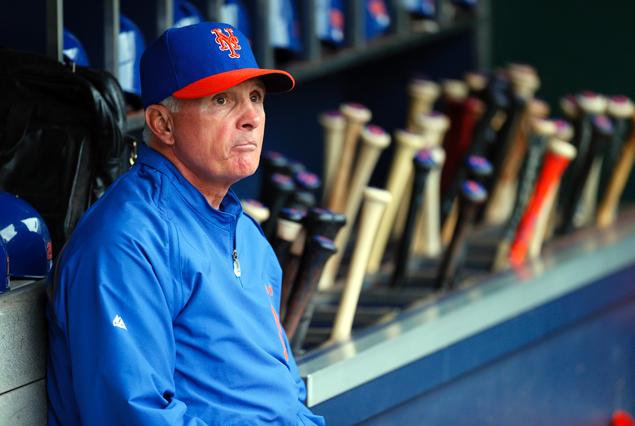
I like Terry Collins. He’s feisty. He competes. He never cries over what he doesn’t have. He has high expectations for those under his command. Collins has been surprisingly adept at handling the New York media during some very difficult seasons, and, for the most part, seems to have maintained his player’s respect.
In fact, the Terry Collins baseball story is quite compelling. A reputation of meltdowns and fractured relationships during prior stints managing professional baseball teams followed Collins when he began his assignment with the Mets. Collins was alleged to be inflexible, overly sensitive to criticism, and to struggle communicating with his players.
Collins admits those early career inadequacies stemmed from a basic insecurity that undermined his managing success. His focus was tipped too far in the direction of himself and his own needs without a real understanding that getting what he wanted as a successful major league manager was contingent on how well he helped his players get what they needed.
Fundamental personal change of this sort is a difficult thing to accomplish, particularly when you have been around the barn as long as Terry Collins when he became the manager of the Mets. In my opinion, somewhere, somehow Terry Collins developed an ethos for helping others first and in so doing found the personal growth that translated into the professional growth he needed to manage people well as the Met’s manager during a difficult transition period.
That leadership style is called “servant leadership,’ not blind adherence to management norms as some allege, but the ability of a leader to redirect focus from themselves to focus on the needs of the people they lead. Successful servant leaders help all learn and grow and develop the mindset and skills that eventually turn into success. It’s a difficult paradigm shift for most, an impossible one for many, but one I believe Terry Collins has handled well.
These are sound arguments for the Mets to bring Collins back next season. I will certainly understand and even endorse an organizational decision should the Mets extend Terry’s contract at the end of the season.
Yet, 2014 is alleged to be the turning point season for the Mets. The Mets are expected to show concrete evidence (wins) that they can close the gap between desired ends (a regularly competitive baseball product) and means (the capacity to get there).
This means the Mets must be active players in the Hot Stove Circuit this winter making targeted moves at improving the roster. If Matt Harvey can’t return it’s expected we should be in the market for an established starting pitcher to solidify the rotation until all our young arms are ready. A position player with proven power numbers on his resume seems a must. Major decisions regarding the outfield are expected. How we find the means, either by free agency or through trade, is not the issue, it’s the ends that count.
There is much to do.
It would also be reasonable to argue, that a turning point year is the ideal time to usher in an era of new field leadership, a fresh face bringing a boost of new optimism, someone not confined by recent performance results, thus, at least initially, better equipped to rally a team on an upward climb.
If 2014 is truly a turning point season, perhaps that, too, should include a new guiding hand in the dugout. That is not meant to be an indictment of Terry Collins. It’s not to say that the Mets can’t elevate to competitive levels under his leadership. Rather, it’s the possibility, the job might be accomplished more easily under the direction of someone else.
Mental sets are funny things. Recent baseball campaigns have conditioned many in the fan base, and I’m certain some players as well, to believe bungled opportunities, sub par baseball performance, and meaningless September baseball is the new Met norm.
Changing perceptions is a necessary part of the paradigm shift that comes with a turning point year, so logic suggests that accelerating Met baseball success might be more easily accomplished with a new man in the dugout.
Then again, in Pittsburgh, a Pirate franchise with a far thicker crust of failed recent baseball ends than the Mets, has turned the corner this year with Clint Hurdle the captain of the ship. Hurdle won only 72 and 79 games in his first two tries as the Pirates skipper, yet the Bucs are off and running for a possible division title and post season play this year.
So, you be the judge. Assume that 2014 is a turning point season for the Mets (a big assumption for sure). If 2014 is the year we make progress at competing for possible post season play, who would you think would best accelerate that process guiding the Met fortunes in the dugout? If it’s Terry Collins let us know why? If not Terry, who would you select for the job and why do you feel he’s the right man at the right time to ease the Mets to attain baseball relevance next year?














